Impulse, excitement, depression…these concepts or both very familiar and hard to grasp. They are human feelings, yet we may also be dominated by them. What is the relationship between people and their emotions? Sometimes it seems to be a close relationship and other times very distant. Where do feelings come from? How can they affect human behavior? The truth always seems to be a mystery, leaving researchers from various areas to obsess over studying the brain, neural networks and mental illness.
In the Shenzhen Key Laboratory of Cellular Physiology at the School of Chemical Biology and Biotechnology (SCBB), there is such a group of "explorers" uncovering the secrets behind the neural network. They probe the cell world inch by inch and ponder over the meaning of life. Through the search, they are hoping to find new avenues for mental illness treatment.
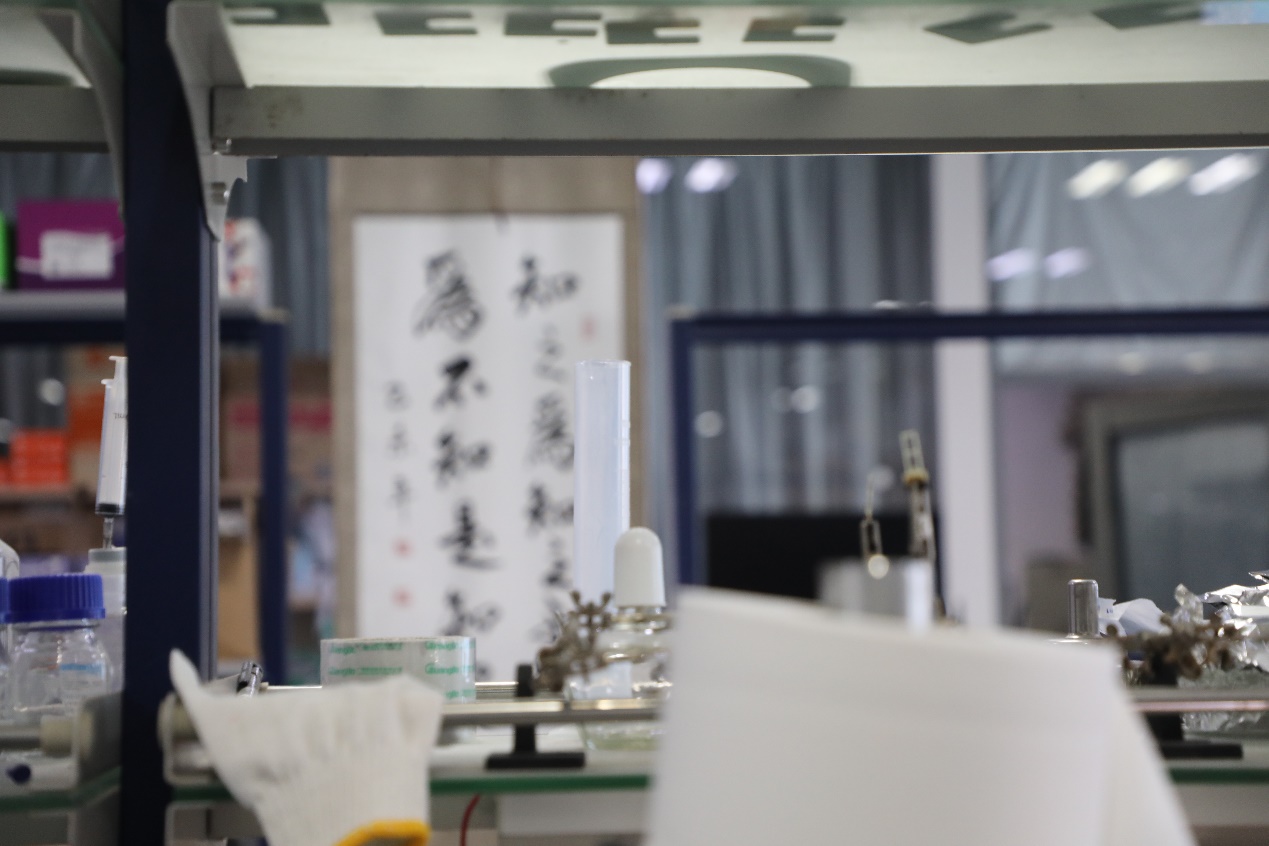
A look at the laboratory
To establish an innovative platform for nervous system research
Professor Zhou Qiang (周强) is the leader of the Shenzhen Key Laboratory of Cellular Physiology and the research group. He graduated from Stony Brook University, New York. Professor Zhou has taught at Icahn School of Medicine at Mount Sinai in the United States, and later engaged in the early research and development of neurological drugs at Genentech/Roche. After almost 10 years of study and work life in the USA, he joined SCBB in 2014. His main research directions are neurodegenerative diseases and mental diseases. With extensive experience in the management of pipeline projects for finished products, Professor Zhou and his team set the basic idea for the team: "new drug research and development (R&D)+ new use of existing drugs + reuse of traditional Chinese medicine," and decided to focus on critical neurological diseases (including Alzheimer's and mental diseases).
At a time when other SCBB laboratories are researching cancer drugs in full swing, the study of mental illness may seem to be a marginal. Yet such work is indispensable. The new drug R&D requires a highly coordinated and comprehensive team, handling various fields including basic research, clinical diagnosis, commercial development, etc. Therefore, the major driving factor for Professor Zhou to return to China is the feasibility practical possibility for organizing such a team here. In addition, he also wants to do some in-depth research on traditional Chinese medicine: “Foreigners have always been distrustful of traditional Chinese medicine, thinking that it cannot prove itself 'scientifically.' Yet as a Chinese, I am a believer of Chinese medicine, especially in the profundity of its theory."
SCBB provided a platform for Professor Zhou to switch his role from industry to academia. On the homepage of his research group, he wrote: "I believe that now it is the right time to translate our vast knowledge about the brain into fruitful treatments for disorders of the nervous system. […] This is why I was drawn to PKUSZ, since I believe it is the best place to do great science, […]" SCBB, a modern and innovative drug research platform, is dedicated to the research and cross-integration of innovative drugs in China. Dean of SCBB, Yang Zhen (杨震), once commented: "Peking University is the top one of comprehensive universities in China, while the Shenzhen Special Economic Zone is a pioneer in reform and innovation. SCBB of PKU, located in Shenzhen, exists exactly like a branch of the future growing out of an ancient deep-rooted tree, opening up the path of internationalization and innovation for the century-old Peking University.
Deciphering the “black box” of mental illness
Mental illnesses clearly affect the normal social and emotional life of human beings. However, they cannot be reduced down to judgements of good and bad. For example, though some autistic patients lack the ability to communicate with the outside world, they are masters in mathematics; some of them, on the other hand, show extraordinary talents in arts and literature. Such phenomenon drive researchers to ponder: can brain functions be better developed during the treatment? How to carry out treatment to develop a patient’s potential instead of lose it? In a world which cherishes the unique personality of every human being, how can we save individuality from mental illness? The researcher’s task is to not only open the door of the patient’s mental world, but also open the window for them to perceive the outside world. Behind this scientific problem is the intersection of humanities and ethics, morality, internationalization and many other fields. "It’s like looking for a needle in a haystack which gives the work a sense of the unknown and of urgency." Thus, every researcher in the lab understands the importance of researching mental illness and emphasizing both individuality and integration.
Everything starts from the “head”. There are two vital areas of exploration. The first one is “understanding”: to track down the foremost genesis of mental illness, through a deeper understanding of the mechanism of cerebral functions. The other is “treatment”: to find ways to regulate the body, and if fortunate, find some clues regarding early diagnosis. In the human brain there are 100 billion neurons between which about 100 trillion synapses exist. 100 trillion, is equivalent to 1,000 times the number of stars in the entire Milky Way. Try to replicate the complexity of the brain? This is a fantasy. "It's like driving a car in a loop… You can never find the beginning and destination," said Professor Zhou describing the "roads" extending in all directions in our brains. When a single cell cannot fight alone, doing research directly upon the animal model becomes an alternative option "because humans and animals generally share emotional aspects."
Heading into the laboratory, if you walk into the small room on the side, you will see three huge instruments which are colloquially called "Big Black Boxes". Doctoral student Ma Xiaoyan (马晓燕) told us that this is a patch clamp system, which is used to record the conditions in the brain slices of living mice. This allows researchers to analyze the mechanism and find the target. Losing targets leads to most drug research failure. The lab is integrating western and eastern approaches. Different from the western medicine research methods, the laboratory is now committed to promoting the modernization of Chinese medicine, which is currently described as the approach with "Chinese characteristics" for solving mental illness.
It is roughly estimated that the brain, which weighs only 7 pounds, consumes roughly 20% of the body's oxygen. Every cerebral neuron is surrounded almost all over by capillaries. Such huge oxygen consumption means that once the cerebral blood flow drops, or any blockage or necrosis occurs, the normal physiological function of the brain is impacted. Existing research has confirmed that many diseases are caused by vascular problems in the brain. This discovery corresponds exactly to the treatment philosophy of Chinese medicine, which emphasizes the dynamic balance and overall change in humans and provides the cure to promoting blood circulation. With Eastern and Western approaches combined--i.e., traditional Chinese medicine understanding the power of blood vessels, and western medicine aiming at targets—the new way of a holistic treatment of dynamic diseases thereby emerged.

The "protagonist" in the laboratory
Connect laboratory research and medical treatment
For SCBB, interdisciplinary research at the interface of multiple fields has been quite normal. Furthermore, this also becomes the school's trademark. SCBB creatively integrates modern organic synthesis chemistry, medicinal chemistry, biology, computational biology and bioinformatics, translational medicine, etc., and gathers scientists from multiple fields to cooperatively make technological breakthroughs. Starting from the research for targets, SCBB has opened up a new path for integration and innovation of original technology and established a modern drug discovery platform. Based on this platform, the Shenzhen Key Laboratory of Cellular Physiology has had intensive in-depth communications with hospitals, research institutes, and laboratories, collecting the characteristics and symptoms of patients as the starting point. These efforts finally led to the deep integration of industry, education and research. Professor Zhou once mentioned the difference between working at school and for a company: "Research at school is conducted in a free, relaxed environment, which makes it easier to stimulate the creativity, vitality and motivate us to explore new things, to think about newly emerging problems, instead of being a machine for doing experiments." Besides the output, modification and application of small molecule compounds, the next step of the laboratory is to advance to clinical trial stages under Professor Zhou’s guidance, connecting the laboratory research and medical treatment. At the same time, the laboratory aims to cultivate the students’ collaboration skills of thinking, communication and cooperation in the training of every scientific research project. "For each researcher, these skills are necessary to enter the workforce in the future."
Moreover, in the course of scientific research, Professor Zhou also committed to have science approach the public, and the laboratory studies become popular science content. In April 2018, Professor Zhou gave a public seminar named "The Future of Memory, Mental Health and Neuroscience" in the Citizen Forum of Shenzhen. He introduced relevant latest research achievements and explained in layman's language that “enhancing self-confidence to help cope with negative events” and “family affection relieving intense pressure” are scientifically supported.
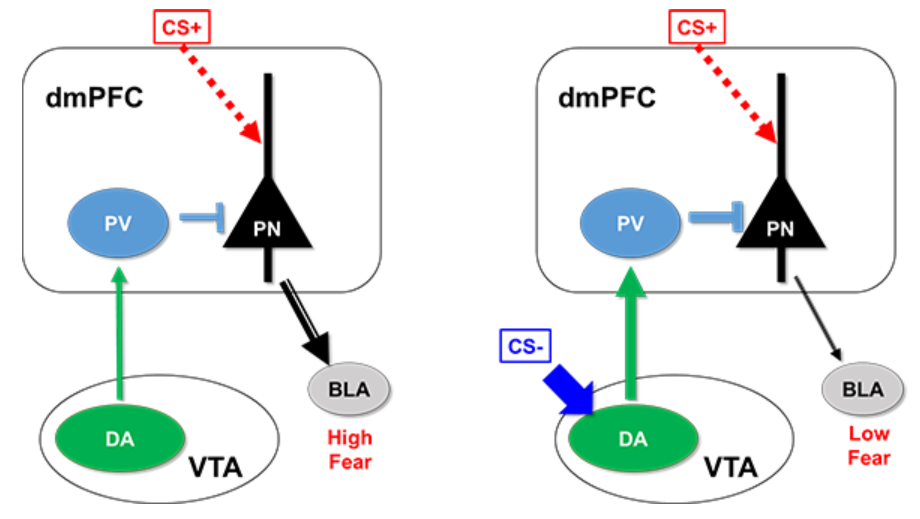
The study on the conditioned inhibition in animal learning / memory process (published in the Proceedings of the National Academy of Sciences of the United States of America (PNAS))
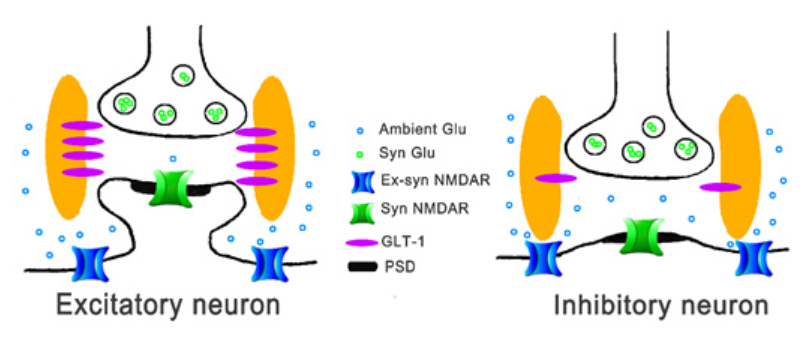
The study on the synapsis difference of inhibitory versus excitatory neurons (published in Nature Communication)
Find the pure love
Mental illness research is more complex and diverse than other disease areas. Professional knowledge and basic quality as well as strong devotion are required to obtain the feelings of joy and satisfaction in the study process. The unique “successive graduate and doctoral programs” allows graduate students in the laboratory to earlier began a dialogue with the inner self, and also have more thoughts about their research areas.
When asked about the reason of choosing her research direction, Ma Xiaoyan, a fourth-year doctoral student, explained that "it is really interesting." Before the first interview, she was preparing a series of experiments on the patch clamp system. Frequent vivo experiments dispelling the scared or uncomfortable feeling, she seemed to be accustomed when dissecting the heads of mice. Currently, she is engaged in research on the mechanism of antidepressant small molecule drugs. "It is closely related to our lives. I was told often that some of my relatives or friends were troubled by mental problems. As long as there is any drug that has even a little effect, then it is a particularly meaningful thing [to find it]."
Wang Tianyu (王天宇), who joined the lab team in 2016, mainly conducts research in the field of emotional memory learning. What he mainly studied is based on the classic behavior of Pavlovian conditioned learning, using various mnemonic devices to study the biological mechanism of neurons and neural circuits. He also focuses on the stress disorder after suffering the mental illness by exploring the ability of animals to avoid potential risks. Wang is about to graduate and start a new journey soon. Speaking of the direction of his future career, he hopes to continue engaging in the neurological field. His current research stays at the laboratory stage. "In the future, I may participate in some clinical-related work, and combine the theory with practice. That may possibly make me feel more fulfilled."
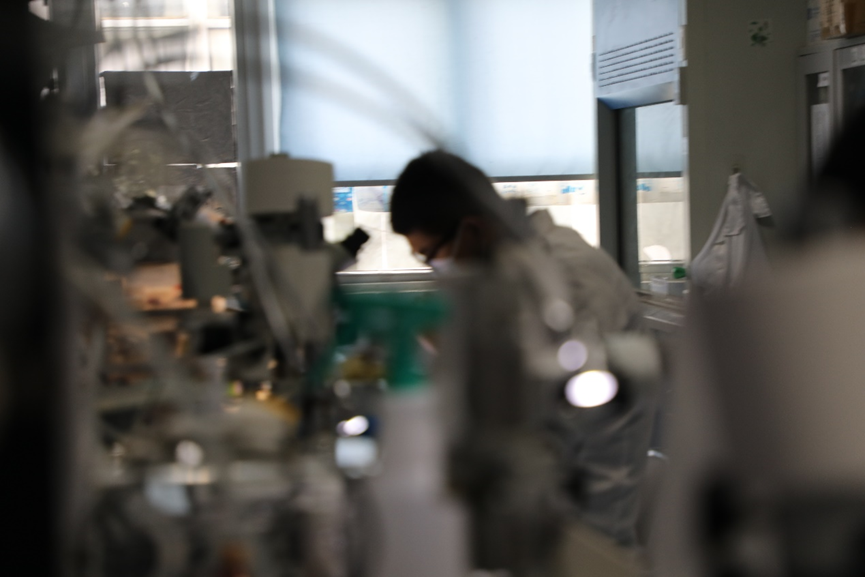
Devotion hidden in the light and shadow
During the conversations with the group, the word of "love" was often coincidentally mentioned. A few years ago, each of them made up his or her mind to come here. Hidden within them there is probably innocent, pure faith. Each small step for them will perhaps allow people with mental illness to open the door for a better life in the future. Countless students and researchers like them are pushing forward development in the field of psychiatric illness in China.

The world under the lens
From research to further comprehension
Conducting experiments can be quite fast-paced and stressful. How do people engaging in research of the inner world deal with their feelings? They have their own understanding of living and work. What kind of spiritual world is perfect? This is an eternal topic. The scientific exploration of the inner world helps them regulate their own emotions and treat human thinking and behavior in a rational manner. The brain is not unchangeable. The most critical thing for people to know is what they want and what they can do, then try to bridge the gap. Here in the lab, there is no physical barrier for communications – the office is not divided by stations as a usual one, but has a large square long table, allowing the easy exchange of team members at any time. Professor Zhou said: “People have their own feelings. They need to talk to themselves, talk to others, and keep learning.” Everyone can find help and feel warm here. Though during the scientific research process, one hundred percent commitment is required—as Rongyi (荣伊) who newly joined the team said, he feels driven by the fighting atmosphere to push the limit. Yet in their spare time, the group members often exercise or hang out together. "We have plans tonight to play some sports," postdoctoral researcher Zhang Yujie (张玉洁) said..
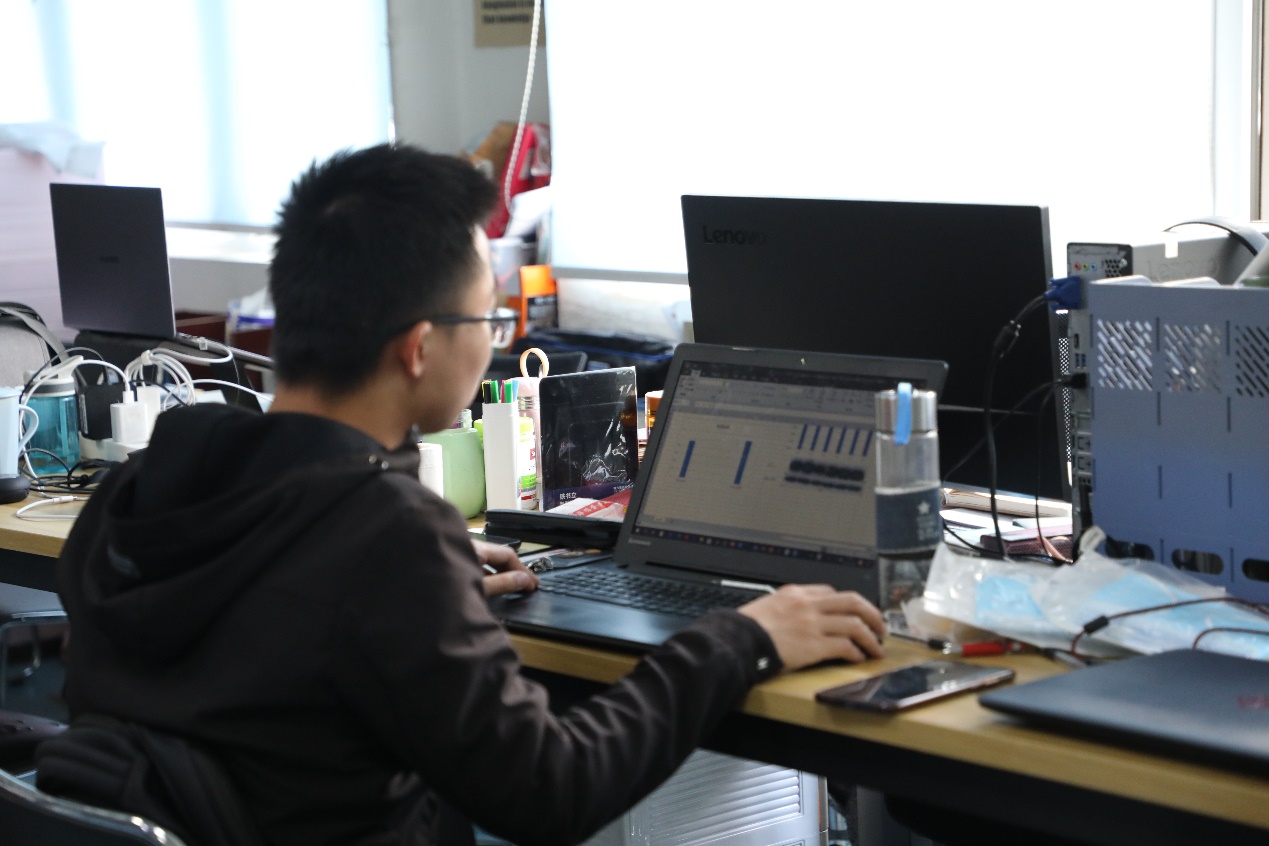
A corner of the office
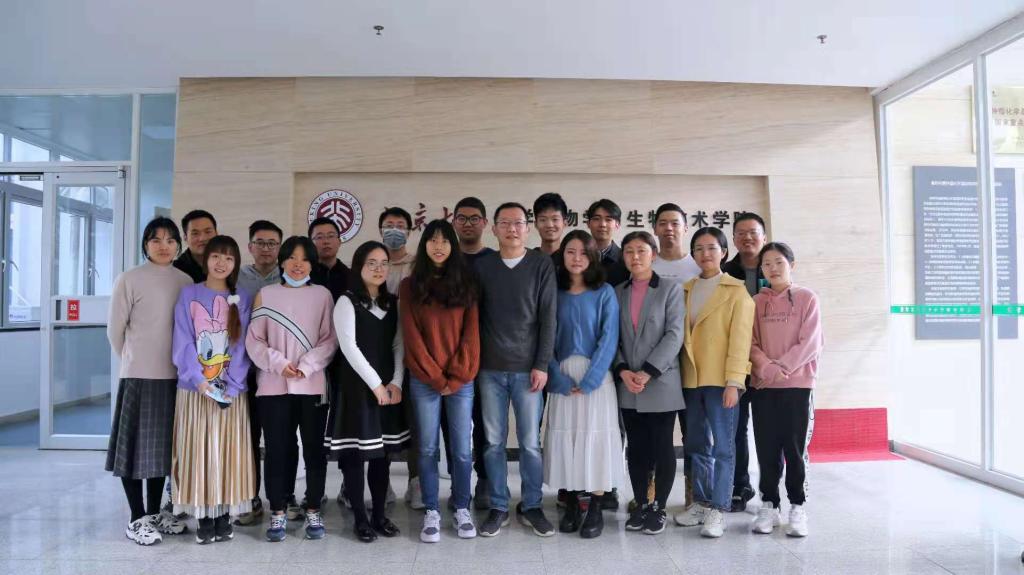
The “family photo”
Answers hidden in time
People cherish something because they understand its value. When exploring the nature of basic science and the inner world, researchers themselves have also been experiencing all the changes brought about by the process. Tens of thousands of neurons are affecting them, but also offering guidance. Researchers know that they are not fighting alone, so they can be brave and calm to confront it.
At present, the primary focus of the laboratory is still to understand the biological basis of neurodegenerative diseases (such as Alzheimer’s disease) and psychiatric disorders (such as depression, schizophrenia and autism), and in doing so, identify new drug targets. It also aims to promote the integration of Eastern and Western therapy approaches, so to have a much deeper understanding of the basic functions of the brain, the genesis of brain pathology and make breakthroughs in how we treat brain diseases. In the future, the lab team will continue to explore this better model. What’s more, students will benefit from a more reasonable education mechanism, share in curiosity and greater enthusiasm, have adventures and endure loneliness together. The study of mental illness is always formidable with no end in sight, yet the entire team will surely head towards greater understanding, driven by this beautiful vision.
Produced by "Laboratory Observation" Special Reporting Group, Nanyan News Agency
Planning: Wu Zijing (邬紫荆)
Reporter: Wang Xue (王雪)
Translated by Hou Sumin
Original article published in Chinese here
